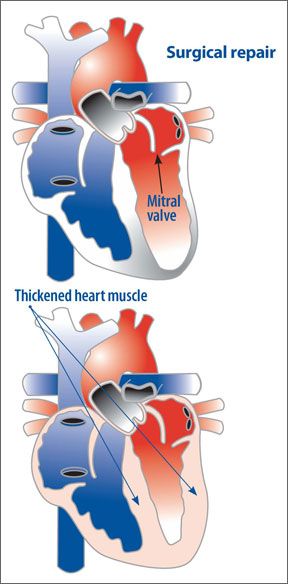Hypertrophic obstructive cardiomyopathy (HOCM, pronounced "hokum") is a condition in which an enlarged muscular wall between the ventricles (septum) prevents the mitral valve from closing correctly, impeding blood flow through the heart. It carries a risk of abnormal heart rhythms, heart failure and, in rare cases, sudden cardiac death (SCD). HOCM is incurable, but new devices and surgical procedures can help preserve quality and length of life. "Patients come in very sick. We make them feel so much better by eliminating the obstruction and valve leakage. They say we have given them their lives back," says Cleveland Clinic cardiologist Harry Lever, MD, an expert in HOCM.
To continue reading this article or issue you must be a paid subscriber.
Sign in






